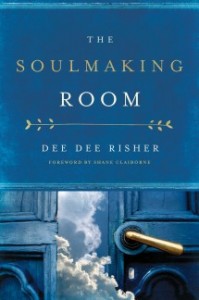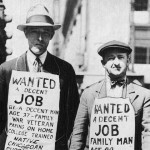When I was a senior at Huntington University, I took a class on the life and writings of C. S. Lewis. Each day Dr. Michelson required us to turn in a reading response. As a part of the assignment, he had us jot down some “snappy quotes,” as he called them, little zingers or one-liners that really jumped off the page or connected with us in some way. That’s the approach I’m going to take with this review. It’s also the approach I took a few weeks ago at Sunday school. I facilitated a group discussion by reading a quote from the book and then opening the floor. Some of these really got people talking, particularly the ones about aging, change, and loss. Our Sunday school is inter-generational, so we had people under 30 and over 70 talking with each other about some important, challenging, and vulnerable subjects. It all gave me such a gratitude for Christ’s church, which is in a unique position to make dialogue like this happen. I think we should do it more often.
Snappy Quote #1
“This book is for people who have lived through stuff. It’s for people who have carried big dreams but lately seem to find themselves mired in the ordinary business of living. Many of us have loved well – or loved poorly – and lost. We’ve had to look death in the eye more than once. Our tongues have encountered the metallic taste of failure.” (p. 13)
I shared this one with you in part 1 of this review, but I wanted to bring it back because of what a great response it got from my Sunday school group. One older man reflected on his struggle with coming to terms with the inevitable move out of his house and into a retirement community. He talked about how that means confronting things left undone and acknowledging the fact that the book is closing on many of his dreams and ambitions. I felt moved.
Snappy Quote #2
“Our job is to find our sermon and to speak it aloud.” (p. 13)
This is our purpose, according to Dee Dee. Each of us has a story, a message, a sermon, and our job is to find it and tell it. The story is uniquely yours. No one else can do it for you, and if you don’t tell it, it won’t get out.
Snappy Quote #3
“I’m trying to make failure teach me.” (p.14)
My father is a business owner and I love hearing his success stories, but the tales that really teach me are all about the mistakes and the accidents and the regrets. It’s hopeful to hear a man who can look back on a lifetime of business accomplishments and talk about mistakes. He’s made mistakes. I’ve made mistakes. I’m going to make more. The question is, “How do I respond to them?” I think this is a key to growing older.
Snappy Quote #4
“We spend endless afternoon’s fishing or hiding in snowy fields of cotton, sliding down heaps of soybeans, and playing games of kick-the-can well into the night. Lying in the bed in which my great-grandfather had died, I would listen to the whippoorwill across the back pond.” (p 36)
This reminded me of my “free-range” childhood experiences: going muskrat spotting after dinner near the creek by my old home, playing in my uncle’s hayloft during the summers, spending weekend nights camping in the cabin our family built together, and creating forts in the old barn with my cousin. Dee Dee grew up in a place and time a bit more detached from civilization than 1990s Bluffton, IN (my hometown), but we still had ways of getting out into the wild and coming into contact with the earth and the night and things still enchanted. And then there’s that last sentence, what a strange and wonderful memory, what a beautiful, holy connection to family and ancestors, to life and death. I picture an old twin bed with a simple metal frame and a quilt.
Snappy Quote #5
“I brought home from China a sense of what it means to live in a conserving economy intensely mindful of resources. Though its economy was beginning to emerge, and with it some material comfort, China was only one generation removed from scarcity. It was still a developing country, even if Marxism had leveled a few of the extremes of wealth and poverty in its history. And although it had accomplished this good, the control that accomplishment needed bore problematic fruit.” (p. 82)
Dee Dee is a progressive Christian (though I can’t remember if she uses that label or not). I don’t share her perspective and at times this became a source of frustration. Take for instance the quote above. As I understand the history, the Chinese experience with Marxism lead to the deaths of 20 million people (a conservative figure) due to famine, forced labor, and political executions. To describe this as “problematic fruit,” if that’s what she’s doing, is startling. It’s not really a book on politics (though she makes her viewpoints known in certain chapters), but this is paragraph that could use some support or clarification.
Snappy Quote #6
Again, on her experience in China:
“I love walking into a store for a product and not being overwhelmed with options… I call to mind the account of a woman from Eastern Europe who walked into a grocery store in the United States for the first time. She looked at the aisles groaning with multiple offerings, the meat counters spanning the back of the store, the cold, air-conditioned produce section with its timed water spritz – and burst into tears. When I do not numb myself, I feel incredulous grief at the opulence, the options, and the incredible waste.” (p. 84)
My senior year at college my history department had a small dinner for the 20th anniversary of the fall of the Berlin Wall. We invited a couple authors (one was Gale Stokes, who spoke at a symposium, the other slips my mind). The other man had lived in Eastern Europe and recounted a similar experience to the one Dee Dee describes in this paragraph. He didn’t break down and cry, as I recall, but he remembered being a bit overwhelmed at all of the deodorant and toothpaste options. One listener remarked to me after the story that he’d rather deal with the stress of too many options than the stress of no options at all (or very little). Dee Dee’s point, for me, fell on deaf ears. To be sure, as a self-described minimalist and a Mennonite, I value simplicity, frugality, and few desires. But that’s not what was going on in China or in the Soviet Union. That was impoverishment and economic control, not a progressive paradise (or perhaps it was!)
Snappy Quote #7
This was printed on the chapter page of Part III. Dee Dee didn’t write it, but I wanted to share it with you, nonetheless.
The Uses of Sorrow
(In my sleep I dreamed this poem)
Someone I loved once gave me a box full of darkness
It took me years to understand that this, too, was a gift.
– Mary Oliver (p. 97)
Snappy Quote #8
“I believe that the most essential work we have to do in this world is to marry the hope and vision of youth with our failures.” (p. 103)
Call me in 20 years and I’ll let you know how this one goes.
Snappy Quote #9
“Change may be our rich and heady friend when we are young, carrying us into new experiences and new roles and new loves. Eventually, though, change is marked by beautiful possibilities quietly slipping from our grasp to become part of the past. In midlife, I began fighting a childish and ultimately destructive battle against change. I was holding on to things of the past. My children were no longer infants. My vocation was gone.
Of course, all such resistance is totally doomed. But that resistance helps us face the latter truth – our need for something steady. We need ground that is changeless.” (p. 107)
Snappy Quote #10
Finally, I’ll leave you with this wonderful passage.
“Here I am, emptied and less resilient than a few years ago, as if I stand on the verge of throwing in some cosmic towel… What possibly will of God is there in these lovely or powerful things dying in my hands? Yet just as the skeletal trunks of trees emerge after a soft snow begins to melt, the truth is there. We have the opportunity to redefine our lives in significant ways. It is not all about going forward. It is not about youth or health. It is not even about us. We confront once more the question of what we are living for. Perhaps for the first time, our lives offer us enough experiences of loss and failure that we can actually learn the art of living.” (p. 172)
Thanks for reading. I do recommend The Soulmaking Room. I hope you enjoy.












